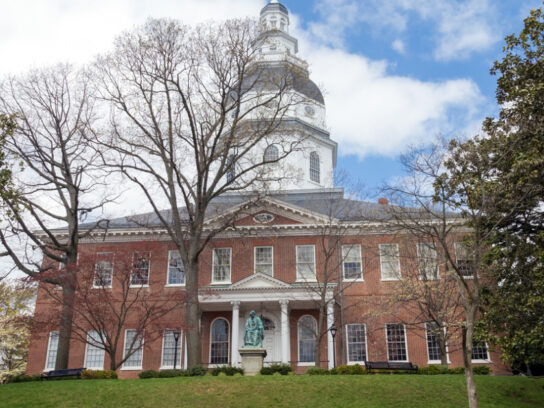
The 2024 Maryland Legislative session is now history. The General Assembly passed more than 500 bills when the session ended April 8. When the General Assembly convened last January, state legislators had no idea they would face a major disaster that would upend their plans and force them to take decisive action.
Bridge Collapse
The collapse of the Francis Scott Key Bridge in Baltimore on March 26 killed six workers. It also is having a major financial impact on the city and the state.
“This was a shocking and devastating development that took priority towards the end of the 90-day session,” State Senator Cheryl Kagan (D-District 17) said.
The General Assembly approved emergency legislation to help thousands of workers impacted by the bridge collapse. Governor Wes Moore already has signed the bill into law which will allow him to dip into the state’s Rainy Day Fund to support those workers.
Budget Proposal
The state legislature also approved the Governor’s $63 billion budget proposal. Legislators approved several tax and fee increases to generate more money for transportation and education. It will cost more to buy a pack of cigarettes. The state tax is going up $1.25 per pack. It also will cost more to register a vehicle in the state, and people who use ride-sharing services will pay an additional 75 cents per ride. Despite some fees going up, the General Assembly did not raise sales or income taxes.
State Senator William Smith (D-District 20) called the spending plan a “very responsible budget that invests in a lot of our priorities while still maintaining our AAA bond rating. The state will spend $9.1 billion for Maryland’s public schools from Pre-K to 12th grade.”
The General Assembly also approved more money towards the Blueprint for Maryland’s Future Fund, which is a 10- year investment to reform education in the state.
State Elections and Other Priorities
Besides approving the budget, the General Assembly took action to ensure the integrity of state elections and protect election workers. Legislators approved four separate bills that will go into effect in time for next month’s primary on May 14.
Kagan summarized some of the other legislative accomplishments this year.
“We did important work to protect the environment, make affordable housing more available, improve access to health care, create more jobs, and protect women’s reproductive rights among many other items,” Kagan said.
Establish Statewide 3-1-1 System
Kagan said the General Assembly also approved a plan to create a statewide 3-1-1 non-emergency phone system. A handful of jurisdictions including Montgomery County already have 3-1-1 service. The legislation passed would create a similar system statewide powered by artificial intelligence.
“This portal will be the first statewide 3-1-1 system in the country. Creating this portal will give people easier access to governmental services. It will relieve pressure on our understaffed 9-1-1 call centers by giving residents a better resource for non-emergency situations,” Kagan said.
The state will now have to figure out how to implement the new service. It is unclear when it might take effect.
Addressing Climate Change
State Senator Brian Feldman (D-District 15) chairs the Senate Committee on Education, Energy and the Environment. His legislative priorities focused on some of these key issues. The General Assembly approved several climate related bills.
One bill will help “jump-start the solar industry to enhance the likelihood of the state meeting its solar energy goals by 2030,” Feldman said.
‘Freedom to Read’ Act
Another key piece of legislation addressed a current controversy across the country; some jurisdictions have banned books from libraries and schools. Maryland is taking a different approach. The General Assembly passed the ‘Freedom to Read’ Act. The bill takes a stand on censorship. It will protect controversial books and other diverse material in libraries. The legislation also protects school and public library employees from being fired or suspended for following state library standards.
Juvenile Justice Reform and Gun Control
Smith said the General Assembly also approved significant investments for Juvenile Justice Reform. Millions will be spent to support the Governor’s newly created Office of Children. Other money will go towards the Department of Juvenile Services. The state also will invest more money to prevent gun violence and auto thefts, and will provide $111 million in grants to address mental health and substance abuse issues.
“The General Assembly also passed legislation to hold the gun industry accountable for its contributions to gun violence. We gave the Attorney General and County attorneys the ability to bring a lawsuit,” Smith said.
Investments in White Oak
Smith’s District covers parts of Silver Spring and Takoma Park, and he was able to bring “an unprecedented amount of money to District 20. We brought back $16 million,” Smith said. “Some of the money will help fund development projects in White Oak,” he added. However, the County will have the final say on how some of the money is distributed.


Comments are closed.